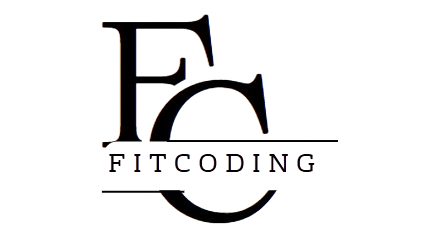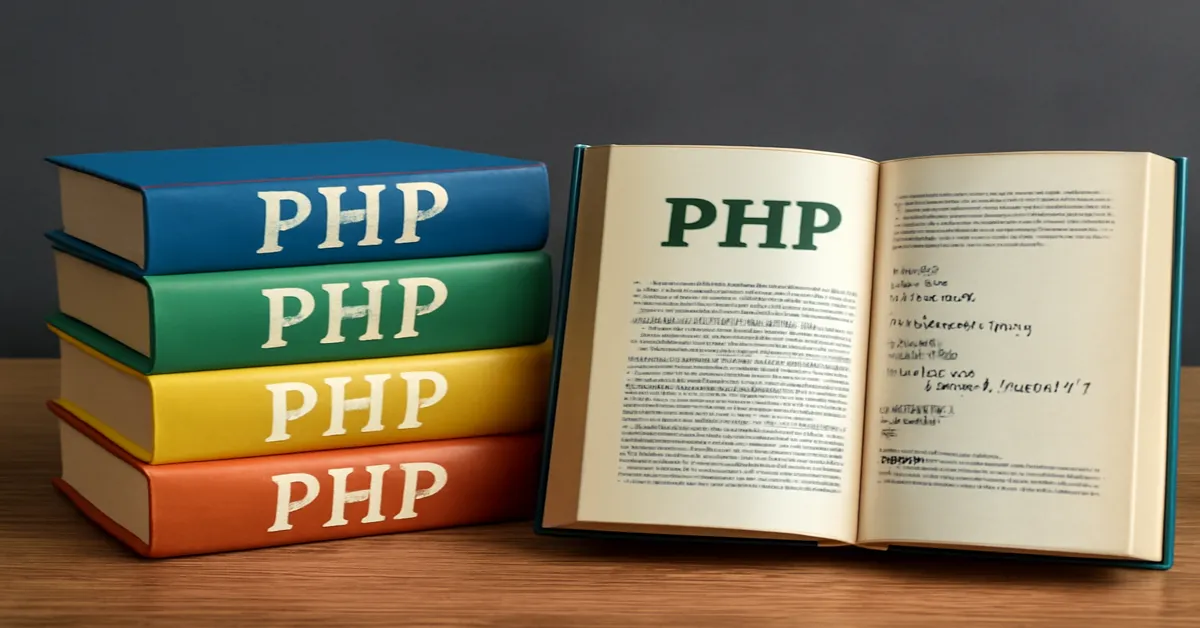PHP remains one of the most widely used programming languages for web development. It’s a powerful server-side scripting language used to build dynamic websites and web applications, and it’s an essential skill for anyone pursuing a career in web development. Whether you’re a beginner or an experienced developer, having access to quality resources is crucial for expanding your knowledge and improving your skills. In this article, we’ll provide a curated list of the best PHP books for developers of all levels, from beginner-friendly options to advanced programming guides. Each book will help you learn the language in-depth, offering practical advice, examples, and even access to online resources that can support your learning journey.
Introduction: Why PHP Books Matter
Books have been a primary source of learning for centuries, and even in the digital age, they remain a vital resource for those who wish to deepen their understanding of a subject. PHP programming is no different—while there are countless tutorials, forums, and documentation available online, books offer structured learning and detailed explanations that can help programmers grasp complex concepts. Books provide in-depth coverage, valuable reference material, and often a collection of exercises and examples that allow you to practice what you’ve learned.
With PHP being an integral part of the web development world, it’s crucial to invest in quality learning resources to stay updated and ensure your coding practices remain relevant. Here, we’ve compiled some of the most comprehensive PHP books that cater to various levels of expertise, from beginners to advanced programmers.
1. PHP for Beginners: A Step-by-Step Guide
Book Title: PHP for the Web: Visual QuickStart Guide
Author: Larry Ullman
Link: PHP for the Web: Visual QuickStart Guide
For those who are just starting out with PHP, Larry Ullman’s PHP for the Web: Visual QuickStart Guide is a highly recommended resource. This book takes a hands-on approach and guides beginners through the basics of PHP in a simple, visual format. By working through step-by-step instructions, readers will be introduced to key concepts such as variables, loops, and arrays, with practical examples to reinforce each topic.
What sets this book apart is its accessible approach. Each chapter is broken down into bite-sized chunks, with examples that you can follow directly. It’s perfect for those who prefer learning visually and need an easy-to-follow guide to get started.
Key Features:
- Easy-to-follow, beginner-friendly content.
- Practical exercises and real-world examples.
- Clear, step-by-step instructions that build your PHP knowledge.
- Accompanying code snippets for hands-on practice.
2. Intermediate PHP Development: Building on the Basics
Book Title: Modern PHP: New Features and Good Practices
Author: Josh Lockhart
Link: Modern PHP: New Features and Good Practices
Once you’ve mastered the basics of PHP, Josh Lockhart’s Modern PHP: New Features and Good Practices offers an ideal resource to level up your PHP skills. This book introduces the new features of PHP and delves into best practices for writing cleaner, more efficient code. The book covers advanced PHP topics such as namespaces, traits, and autoloading, which are essential for more complex applications.
Lockhart also highlights key PHP features that can improve the performance and scalability of your code, such as dependency management with Composer and using object-oriented programming (OOP) effectively. The focus is on writing modern, maintainable PHP code, preparing readers for a professional environment.
Key Features:
- Advanced PHP concepts explained clearly.
- Emphasis on object-oriented programming and modern practices.
- Best practices for optimizing PHP code.
- Real-world examples to apply in your projects.
3. Advanced PHP: Mastering Object-Oriented Programming
Book Title: PHP Objects, Patterns, and Practice
Author: Mika Schwartz
Link: PHP Objects, Patterns, and Practice
If you’re an intermediate developer looking to advance your knowledge of PHP, especially in the area of object-oriented programming (OOP), PHP Objects, Patterns, and Practice by Mika Schwartz is a must-read. This book dives deep into OOP concepts and demonstrates how to apply design patterns and best practices in your PHP code.
Schwartz walks you through the creation of reusable PHP components and demonstrates advanced patterns like the Singleton and Factory patterns, which are used to solve common problems in PHP development. This book also covers topics like refactoring, testing, and improving code maintainability—crucial for any developer working on large-scale projects.
Key Features:
- In-depth coverage of object-oriented programming.
- A focus on design patterns and code maintainability.
- Advanced tips for refactoring and testing.
- Real-world use cases and examples of design patterns in PHP.
4. PHP and MySQL: Building Dynamic Websites
Book Title: PHP & MySQL: Server-side Web Development
Author: Robin Nixon
Link: PHP & MySQL: Server-side Web Development
For developers who want to take their PHP skills to the next level by integrating databases into their websites, PHP & MySQL: Server-side Web Development by Robin Nixon is an excellent resource. This book covers everything you need to know about combining PHP with MySQL to create dynamic, data-driven websites.
From setting up databases to querying and managing data, Nixon provides clear instructions on how to leverage MySQL alongside PHP. The book covers advanced topics like session management, cookies, and security techniques, making it an essential resource for anyone looking to develop full-fledged dynamic websites.
Key Features:
- Comprehensive guide on integrating PHP with MySQL.
- Covers both the basics and more advanced database concepts.
- Practical, hands-on examples and projects.
- Clear explanations of security practices in web development.
5. PHP Frameworks: Streamlining Development
Book Title: Laravel: Up & Running
Author: Matt Stauffer
Link: Laravel: Up & Running
For developers working with modern PHP frameworks, Laravel: Up & Running by Matt Stauffer is an indispensable resource. Laravel is one of the most popular PHP frameworks, and this book provides an in-depth introduction to its features and tools.
Stauffer’s guide covers everything from setting up a Laravel project to building RESTful APIs and testing applications. Laravel’s elegant syntax and powerful features make it a great choice for web development, and this book equips developers with the skills they need to use it effectively in real-world applications.
Key Features:
- In-depth coverage of Laravel, the most popular PHP framework.
- Covers features such as routing, Blade templating, and Eloquent ORM.
- Practical examples and best practices.
- A great resource for developers looking to build scalable applications.
6. PHP for WordPress Developers
Book Title: Professional WordPress: Design and Development
Author: Brad Williams, Justin Tadlock, John James Jacoby
Link: Professional WordPress: Design and Development
If you’re looking to create custom themes or plugins for WordPress, Professional WordPress: Design and Development is a must-read. This book walks you through the entire process of WordPress development, from setting up WordPress to customizing themes and developing plugins.
Brad Williams and his co-authors provide in-depth coverage of WordPress architecture, theme development, plugin creation, and even performance optimization. It’s perfect for PHP developers who want to learn how to extend the functionality of WordPress and create custom solutions for their clients.
Key Features:
- Focuses on WordPress theme and plugin development.
- Advanced WordPress development techniques.
- Best practices for optimizing WordPress websites.
- Clear explanations of WordPress core features.
7. PHP and Security: Ensuring Safe Web Applications
Book Title: PHP Security
Author: Chris Shiflett
Link: PHP Security
Security is a critical aspect of web development, and PHP Security by Chris Shiflett is an excellent resource for developers who want to ensure their PHP applications are secure. This book provides detailed insights into common PHP security issues such as SQL injection, cross-site scripting (XSS), and cross-site request forgery (CSRF).
Shiflett offers practical solutions for securing your PHP applications, including techniques for input validation, password hashing, and proper session management. By reading this book, you’ll gain the knowledge needed to create secure, robust applications that can withstand attacks.
Key Features:
- Focus on common PHP security vulnerabilities.
- Best practices for securing PHP applications.
- Practical, real-world solutions for securing websites.
- A comprehensive guide to PHP security issues.
Conclusion: PHP Books as Essential Learning Tools
PHP remains a vital part of web development, and mastering the language is essential for anyone looking to build dynamic, database-driven websites. The books listed above provide a comprehensive guide to learning PHP, from foundational topics to advanced concepts such as object-oriented programming and web security.
By working through these resources, developers can not only gain a solid understanding of PHP but also apply modern best practices, such as integrating frameworks like Laravel and ensuring the security of their applications. Whether you’re just starting out with PHP or looking to deepen your knowledge, these books will help you build the skills needed to thrive in the ever-evolving world of web development.
Investing in quality PHP books is an investment in your career. By learning from the experts and following the guidance in these books, you’ll have the tools and knowledge to create modern, dynamic, and secure PHP websites.
Read
Creating a Futuristic Website with PHP: A Step-by-Step Guide for Modern Web Development
Building the Future: How to Create the Best PHP Program for the Next Generation of Developers
30 Interview Questions for PHP Programming: Your Guide to Acing PHP Interviews
FAQs
1. What are the best PHP books for beginners?
For beginners, PHP for the Web: Visual QuickStart Guide by Larry Ullman and PHP & MySQL: Server-side Web Development by Robin Nixon are excellent choices. They cover the fundamentals of PHP, from basic syntax to interacting with databases, with step-by-step instructions and clear explanations.
2. How can PHP books help improve my coding skills?
PHP books provide structured learning, practical examples, and exercises that help deepen your understanding of the language. They also cover advanced topics such as object-oriented programming, security practices, and integrating PHP with MySQL, allowing you to build more robust and scalable applications.
3. Do I need a physical copy of PHP books or can I use digital versions?
Both physical and digital copies of PHP books are valuable. Digital versions allow you to quickly search for concepts and access the material on multiple devices, while physical copies can provide a more focused, distraction-free reading experience. It depends on your personal preference.
4. Are PHP books still relevant in today’s web development environment?
Yes, PHP books remain highly relevant in today’s web development environment. Despite the rise of new technologies, PHP continues to power a large portion of the web, including platforms like WordPress. Books help developers learn best practices, understand core principles, and stay updated with modern PHP techniques.
5. Can I learn PHP through books without practical experience?
While books provide essential knowledge, practical experience is necessary to master PHP. Books can guide you through concepts and syntax, but to solidify your skills, you should apply what you learn by working on projects and real-world examples.











